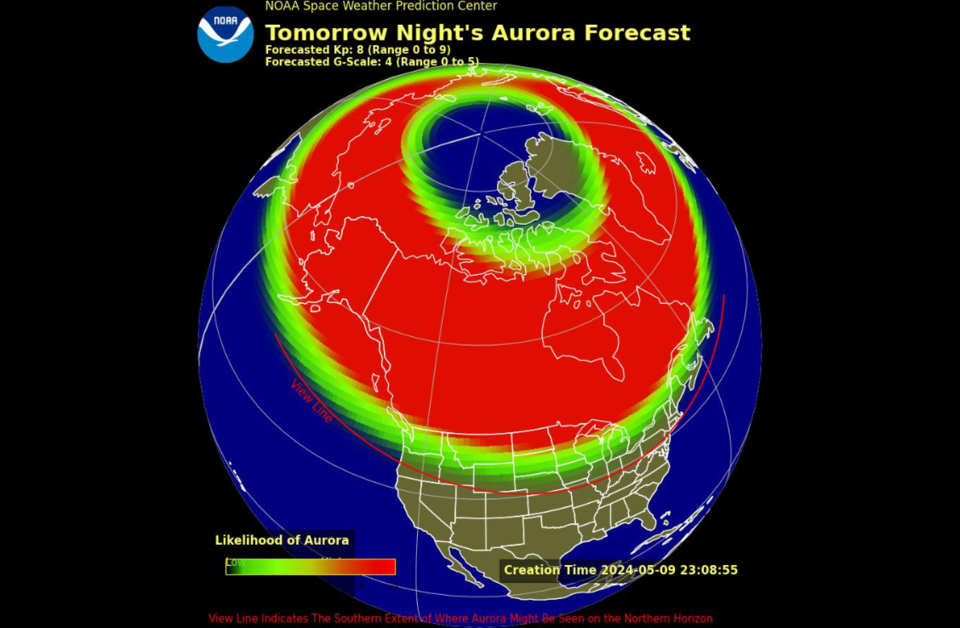Friday night will be all right for northern lights.
The aurora borealis will wow sky-watchers as a major geomagnetic storm reaches Earth, according to the American National Oceanic and Atmospheric Administration (NOAA).
On Thursday, May 9, the NOAA issued a severe (G4) geomagnetic storm watch; it's the first one issued since 2005.
"At least five Earth-directed coronal mass ejections (CMEs) were observed and expected to arrive as early as midday Friday, May 10 and persist through Sunday, May 12," they state.
"This is an unusual event."
The ejections are coming from a sunspot 16 times the diameter of Earth. That spot has caused G4 storms earlier this year. However, NOAA notes the last G5 storm hit Earth in 2003 and caused power issues from South Africa to Sweden.
"CMEs are explosions of plasma and magnetic fields from the sun’s corona. They cause geomagnetic storms when they are directed at Earth," states NOAA in the watch notice. "Geomagnetic storms can impact infrastructure in near-Earth orbit and on Earth’s surface, potentially disrupting communications, the electric power grid, navigation, radio and satellite operations."
Northern lights in Vancouver
Among other things, the solar ejections mean there could be some flashy northern lights over Vancouver over the weekend.
"Geomagnetic storms can also trigger spectacular displays of aurora on Earth. A severe geomagnetic storm includes the potential for aurora to be seen as far south as Alabama and Northern California," reads the watch.
Luckily, Vancouver's currently got a ridge of high pressure keeping temperatures high and skies clear.
At the same time, the website AuroraForecast.com lists May 11 as a night for "intense aurora" and rates it a 10 out of 10 for predicted activity.



